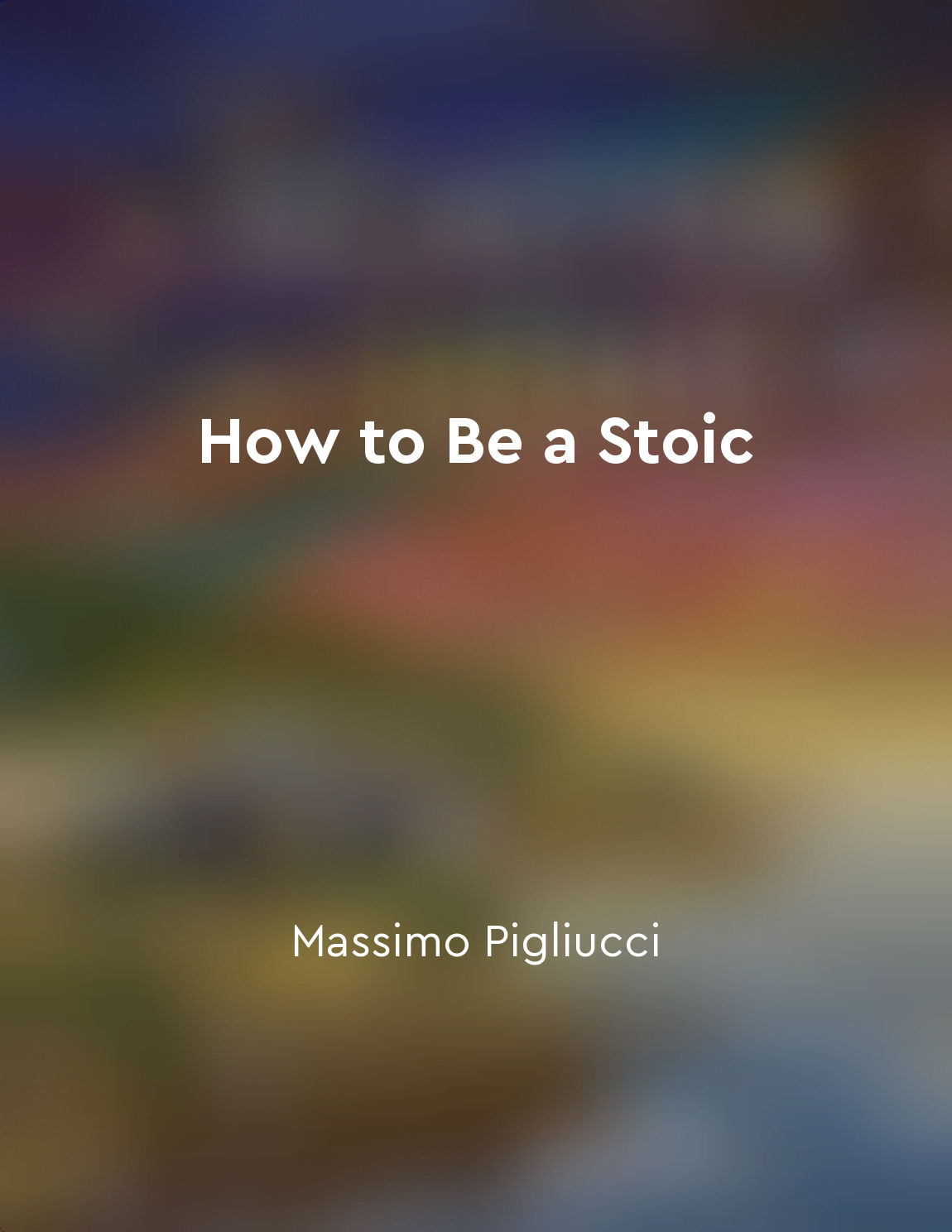Practice selfdiscipline and restraint from "summary" of How to Be a Stoic by Massimo Pigliucci
The Stoics were keen on the idea of self-discipline and restraint, believing that these qualities were essential for leading a virtuous life. The concept is simple yet powerful: by practicing self-discipline, we can resist the temptations that lead us astray and stay true to our principles and values. This, in turn, allows us to live a life in accordance with nature, free from the turmoil and chaos that often result from giving in to our desires and impulses. Self-discipline is not about denying ourselves pleasure or punishing ourselves for our mistakes. It is about cultivating the strength of mind to make rational choices and act in a way that is in line with our best selves. By exercising self-discipline, we can avoid falling into destructive patterns of behavior and instead steer our lives in a positive direction. Restraint, on the other hand, inv...Similar Posts

Stoicism teaches us to be content with what we have
Stoicism emphasizes the importance of cultivating contentment with one's current circumstances. It teaches individuals to find ...
Prioritize what truly matters
The Stoics believed that we must learn to distinguish between what truly matters and what does not. This means being able to pr...

Be aware of your mortality and live each day as if it were your last
The Stoics believed that reflecting on your own mortality is a powerful tool for living a good life. By acknowledging that our ...
Striving for excellence in all that we do leads to a life welllived
The Stoics believed that the key to a fulfilling life lies in our pursuit of excellence in all our endeavors. By striving for e...
Rational selfcontrol is emphasized in Stoic philosophy
Stoic philosophy places a heavy emphasis on rational self-control, viewing it as a cornerstone of ethical living. The Stoics be...
Focus on what is under your control
The Stoics advise us to focus on what is under our control, and ignore what is not. This seemingly simple concept is at the cor...

Acceptance of things beyond our control is a key Stoic teaching
The Stoics teach us to recognize the limits of our control. They remind us that there are some things in life that are simply b...
Stoicism provides tools for emotional selfmastery
Stoicism, as a philosophical system, offers a set of tools that can help individuals achieve emotional self-mastery. By underst...

Practice resilience in the face of adversity
The Stoics believed that adversity is an inevitable part of life, and that the key to dealing with it effectively is to cultiva...
Finding joy in the present moment rather than dwelling on the past or worrying about the future is a key to happiness
In our daily lives, we often find ourselves consumed by thoughts of what has already happened or what might happen in the futur...
